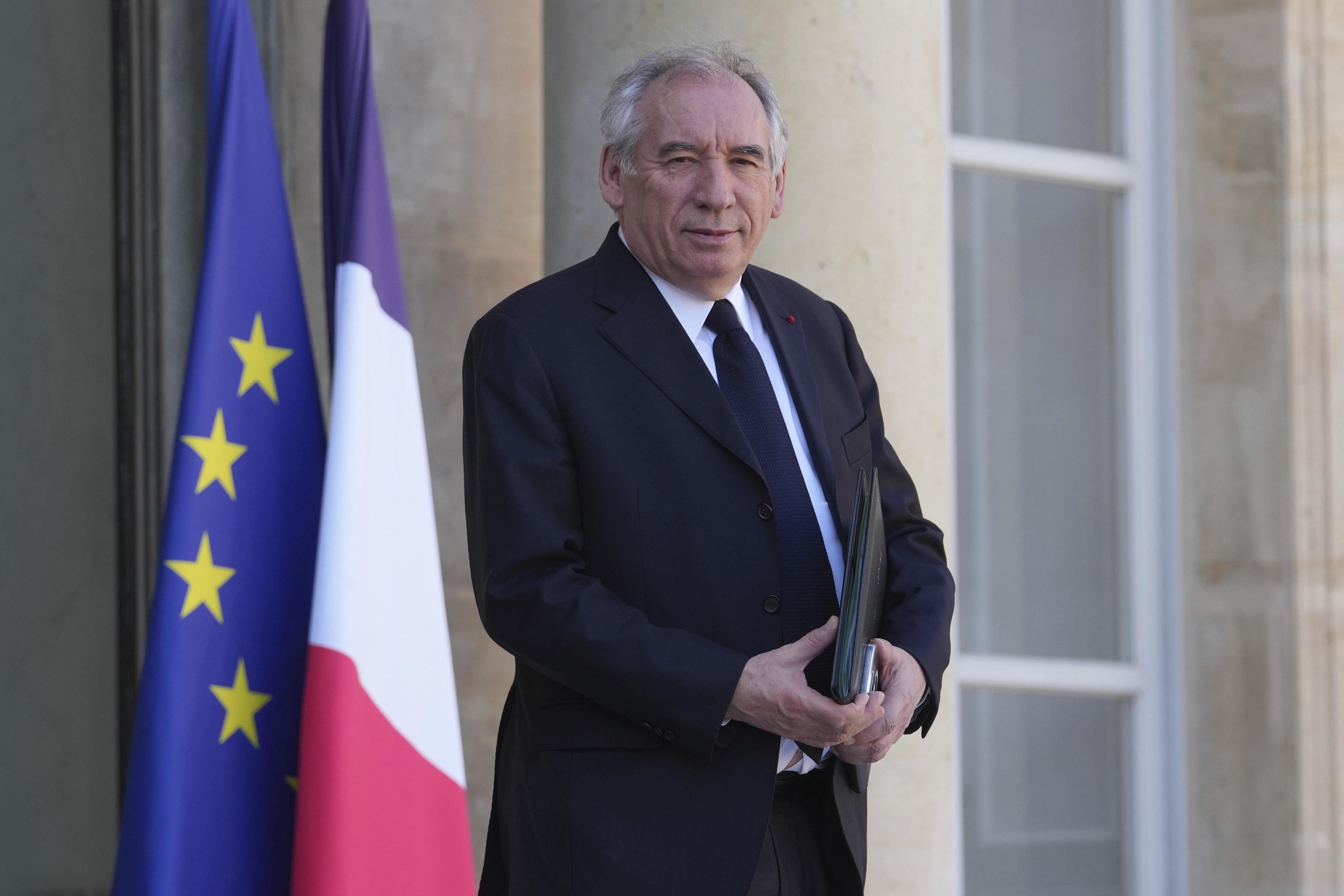"There are worse things in life than leading a government and having that government overthrown"... François Bayrou decided to write his farewell as French Prime Minister hours in advance, certain that he will lose today's vote of confidence, unanimously described as "political suicide". President Emmanuel Macron seems willing to "sacrifice" the centrist leader and to extend a hand to the Socialist Party (PS) in a desperate attempt to avoid the early elections demanded by both the far-right and far-left.
Bayrou himself, when acknowledging his possible downfall, warned the Elysée tenant about the almost impossible mission of broadening his extremely fragile coalition to the left: "We are facing political parties that not only do not agree on anything, but worse, they are in a civil war. And they join forces to overthrow the government." Macron's intention to replace Bayrou with a socialist (possibly their leader, Olivier Faure) has indeed reignited the civil war within The Republicans (LR), the diminished traditional right-wing party, led for the past three months by the Interior Minister, Bruno Retailleau.
"I clearly stated to the President of the Republic and the Prime Minister: if it's the socialists, it will be without us," declared Retailleau during the LR meeting held over the weekend in Port-Marly. "I invite those who love France and those who are patriots, those who did not listen to the conclusions of the last socialist congress in Blois, to analyze it carefully: it means 50,000 million more in taxes, public spending, abolition of pension reform... It's everything we do not want and that would sink France. The French left is one of the most archaic in Europe."
Retailleau, the most highly rated minister in the current government for his tough stance on immigration, has entered into direct confrontation with the President of the parliamentary group, Laurent Wauquiez, seemingly open to extending a hand or at least "not censoring" a hypothetical government led by a socialist.
Despite the frictions caused by his proposal not only on the right flank of his government coalition but also in the centrist bloc composed of Renaissance, Horizons, and the Democratic Movement (MoDem), Macron will likely persist in the coming days with the "socialist option". After all, the PS was the one who launched his political career when he was Minister of Economy under François Hollande, before redefining himself as a "liberal centrist" and founding his own party.
Since coming to power in 2017, Macron has not handed over the reins of the government to a socialist. Until July 2024, he managed with the support of his centrist bloc, but the early elections (following the rise of Marine Le Pen's far-right in the European elections) resulted in the loss of the absolute majority and the significant fragmentation of the National Assembly into three practically irreconcilable factions that exist to this day.
The elections also confirmed the collapse of the two moderate forces of right and left, The Republicans and the Socialist Party, surpassed at the extremes by National Rally and France Unbowed. The PS actually became the fourth political force, with 66 deputies, aligned with the left in opposition but with the potential to become, if necessary, a kingmaker party.
The crisis threatening to precipitate the fall of François Bayrou comes nine months after the resignation of Michel Barnier due to the impossibility of passing his own budget. Centrist Bayrou survived eight votes of no confidence during this time, mainly driven from the left, thanks to the passive support of Marine Le Pen's National Rally, which decided to save its ammunition for the renewed battle over the Budget.
The announcement of cuts estimated at 43.8 billion euros, to reduce public debt and lower the deficit from 5.8% to 4.6%, was the equivalent of Bayrou's political harakiri in the middle of summer. Along with the freezing of pensions and social benefits, there were layoffs of civil servants, healthcare cuts, and the most unpopular measure of all: the elimination of two public holidays (Easter Monday and Victory Day) in the name of productivity.
Despite almost unanimous criticism from the far-right to the far-left, Macron initially went all-in supporting Bayrou and described his budget as "bold and courageous". The president defended it throughout much of the summer, but his support waned when it became clear that the Prime Minister's calculations were not adding up.
The announcement of a vote of confidence, without waiting for the opposition to present a motion of no confidence, was seen as a leap into the unknown. Bayrou reached out to all political forces to cling to a lifeline, even leaving open the possibility of negotiating some of his most unpopular proposals, including the previously mentioned public holidays.
Meanwhile, Macron met with his allies Gabriel Attal (Renaissance) and Edouard Philippe (Horizons) to try to envision the futurepost-Bayrou (leader of the devalued MoDem). Bruno Retailleau was also invited to the working lunch at the Elysée, who in recent months has engaged in his own verbal battle over the "end of Macronism" and apparently hindered the president's intention to bring together The Republicans and the Socialist Party (equivalent to integrating the Popular Party and the PSOE into a government coalition).
During the negotiations, the possibility of a "technocratic Prime Minister" like Economy Minister Éric Lombard was also discussed, considered, however, too closely linked to the contentious budget. Bayrou himself even suggested his Justice Minister, Gérald Darmanin, a member of The Republicans, as "the most suitable" to succeed him, without the need to open the door to the socialists.
